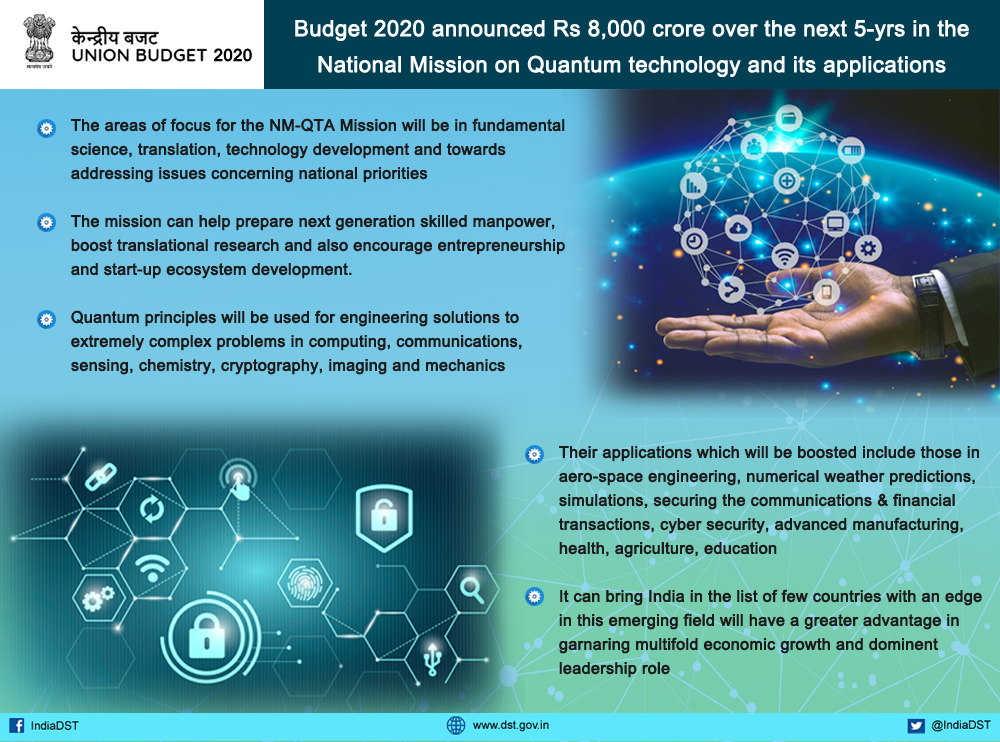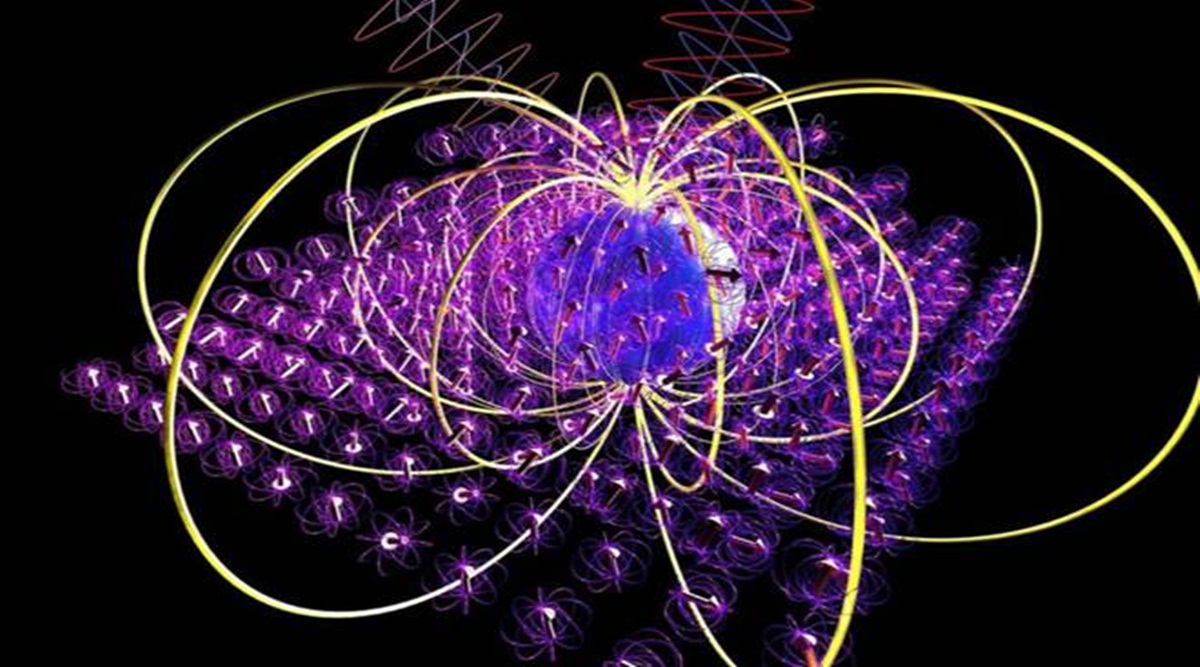Quantum technologies are among the most intriguing and quickly evolving emerging technologies of the twenty-first century. It is envisaged that several commercial applications will arise from the theoretical constructs that are being developed globally in this sector. Thus, Countries that get an advantage in this field may have a bigger advantage in achieving multi-fold economic growth and a strong leadership role around the world.This was one of the reasons why The Indian government named quantum technology a “mission of national importance.” in 2019, which resulted in significant public and private investment in relevant core and applied research.
 Source: Frontier Express
Source: Frontier Express
What exactly is quantum technology, and what are the major scientific ideas underlying it?
Quantum technology is a new discipline of physics and engineering that is based on the principles described by quantum theory. According to quantum mechanics The purpose of quantum technologies is to control or modify the properties of such particles in order to develop computers and other technologies that outperform present technology significantly. Quantum mechanics is a branch of physics that investigates the nature and behaviour of matter and energy at the atomic and subatomic levels. The behaviour of such minuscule particles (such as photons, electrons, and so on), sometimes known as quantum particles, differs significantly from that of conventional macroscopic things.
 Source: Techgig
Source: Techgig
What potential uses for quantum technology exist?
Quantum computers use the special properties of quantum mechanics for computation. This adds fresh ideas to conventional programming techniques and enables a quantum computer to process more applications at once than a typical computing system could, all while operating at a significantly faster rate.
The principles of quantum physics are used in quantum communication to protect data. For data transmission through optical cables, it uses quantum bits, typically photons of light.A quantum simulator is a specially created quantum computer built with the intention of imitating substances or chemical processes seen in the real world. In contemporary technologies for measuring forces, gravitation, electric fields, etc., quantum sensing seeks to utilise discrete particles like photons and electrons as sensors.
Increasing the processing power of a current computer exponentially would enable quantum computers to handle complicated issues by more correctly analysing massive data sets. challenging issues (problems with lots of variables interacting in complicated ways). This will then lead to innovations in a number of sectors, such as weather forecasting, where improved weather system modelling will enable researchers to quickly and accurately predict the shifting weather patterns.
 Source: Statista
Source: Statista
Optimising logistics and scheduling procedures linked with supply-chain management, such as traffic management and fleet operations, requires improved data analysis and robust modelling. distribution, freight, and air traffic control. Energy: Providing high-fidelity sensing, resolving difficult large-grid data optimization problems, etc.
Why should India place a high priority on quantum technology?
Keeping up with the disruption: Quantum computing is one of the newest and most disruptive technologies, and it is projected to completely alter the global economic system. Computers can compromise the current encryption, posing a threat to a nation’s vital cyber infrastructure, sensitive financial and personal data, and secret military and strategic data.
compromising the nation’s security Potential Chinese threat: Chinese scientists have built a 15-user quantum secure direct communication network and asserted to have attained quantum supremacy. Support economic growth: India has the potential to grow into a significant market for quantum research and development, software creation, and equipment production.
 Source: DST
Source: DST
Encourage entrepreneurship and the development of start-up ecosystems: The transition of quantum science and technology from a field of research to its application in day-to-day life is the ideal time for this to happen. Quantum technology can play a revolutionary role in fields like health, energy, industry, innovation, and infrastructure, helping India to raise its living standards.
that allows for the formation and growth of several startup businesses.
What steps have been done to bolster the quantum industry in India?
Keeping up with the change: quantum computing is one of the newest and most disruptive technologies, predicted to completely alter the global economic system. In terms of national security, adversarial use of quantum computers could jeopardise current encryption. It could endanger a nation’s vital cyber infrastructure, private and financial information, and secret military and strategic data, endangering its national security.
 Souce: Finance Express
Souce: Finance Express
Chinese researchers could pose a threat: They have already built a 15-user quantum secure direct communication network and asserted they have attained quantum supremacy. Increase translational research: India can catch up to other developed nations in terms of technology development and higher education in the fields of science, technology, and engineering by encouraging advanced research in quantum science and technology. Promote economic growth: India can develop into a significant market for software development, equipment manufacture, and quantum R&D as part of overall expansion.
India’s quantum technology ecosystem is expanding, driven by the involvement of the government, academia, service providers, and the startup scene. With a strong research foundation and workforce supported by substantial and dependable government funding, it can result in the development of novel applications by industry, stimulation of economic expansion and the development of viable answers to difficult and unresolved problems affecting people.













